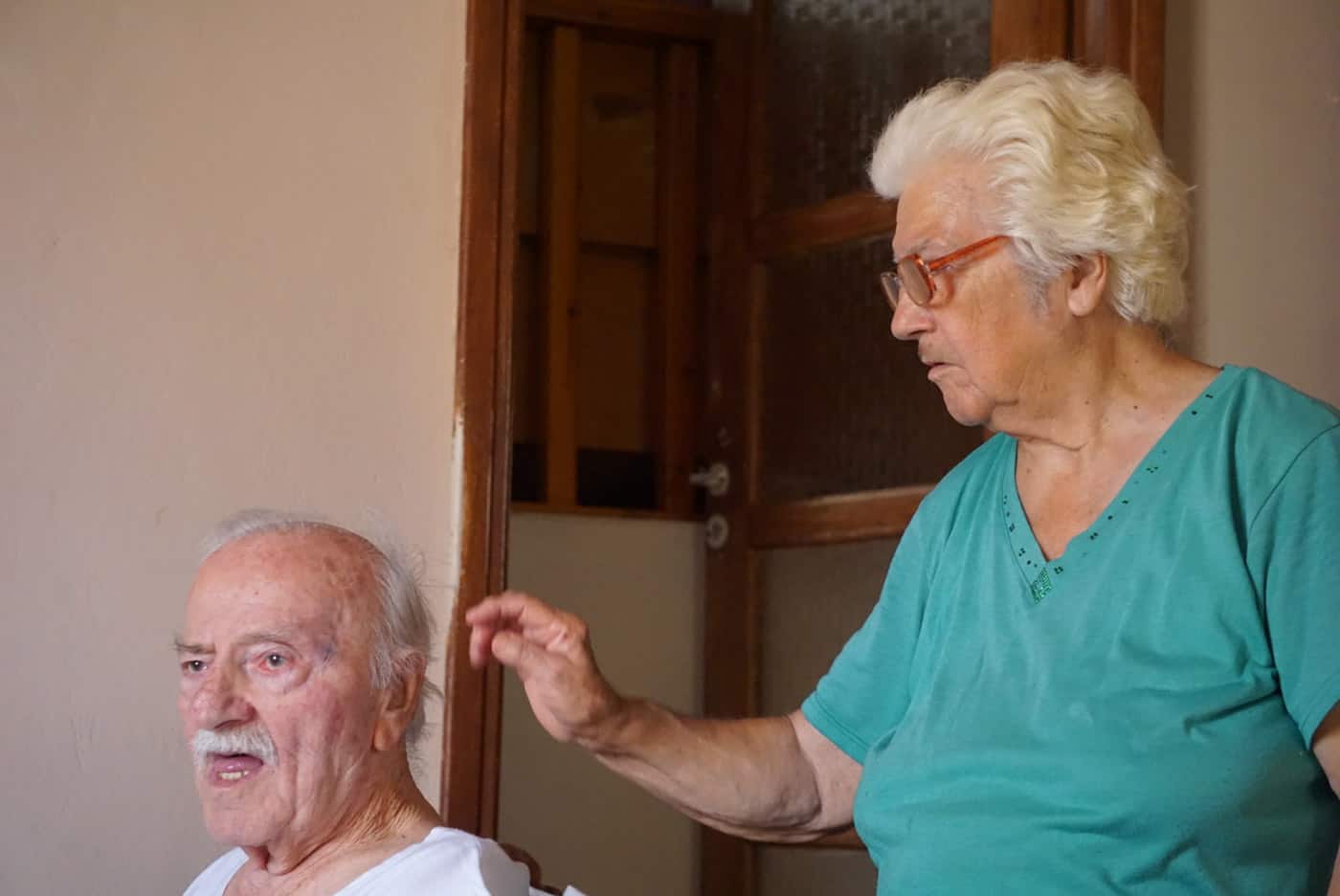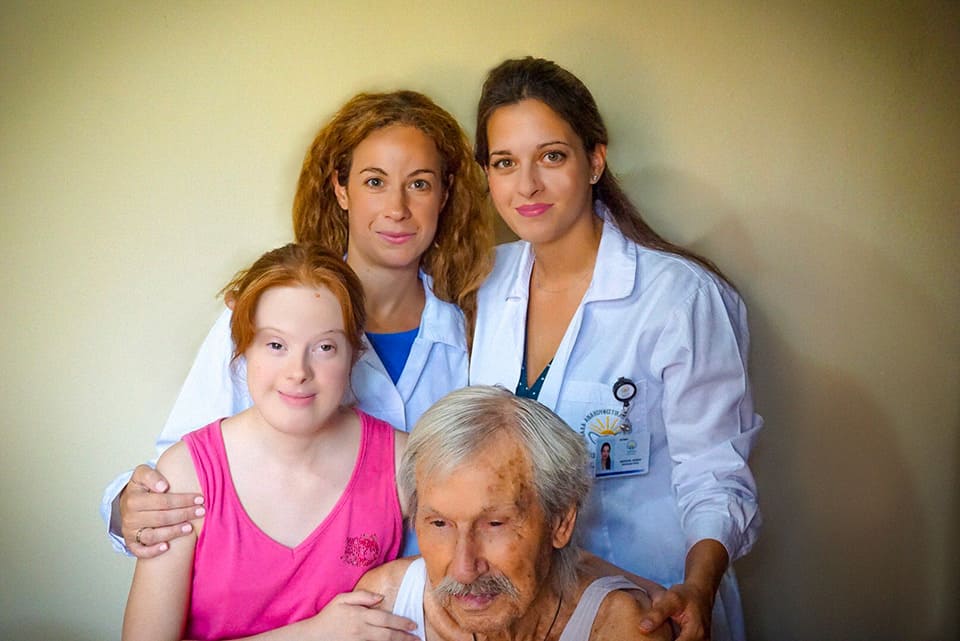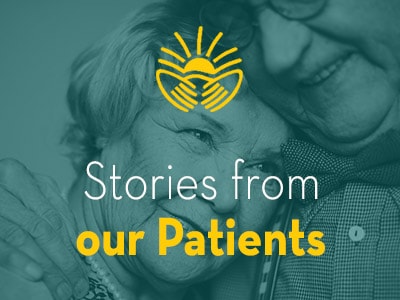Family and friends often take on the essential role of caring for and supporting patients. Caregivers are very important to patients and to the state of their health, but they also face many difficulties during the course of the patient’s illness.
In order to carry out this valuable but demanding work caregivers themselves need support and care to deal with the stresses, difficulties, and practical problems they face.
At «Galilee » we are here to support them too.
Caring for someone who is ill
By the term caregiver we mean anyone who offers practical, emotional or social assistance to their partner, relative or friend who is suffering from a serious and advanced disease.
Some of the fundamental issues that caregivers face are:
- Tiredness, fatigue, and even exhaustion.
- Their own resulting health issues, such as back and joint problems, sleep disorders, depression, and so on.
- Anxiety and stress
- Difficulties in family and social relationshiops
- Constraints on their work and career
- Financial problems and worries
- Feelings of isolation, sadness, helplessness, anger, guilt, and regret.
As a caregiver you may try to get used to dealing with the illness and how it affects the life of the whole family and those close to you.
Every situation is different and every person has a different way of dealing with what they are facing. A serious illness may bring about many changes in one’s daily life and relationships. This may bring you closer to the person you are caring for, but at the same time it may cause you to worry and become exhausted, and you may not know where to turn for help.
Some of the tasks that you may need to take on as a carer are:
- Assisting with personal care tasks, such as washing and dressing
- Helping someone get out of bed
- Helping someone get to the bathroom
- Household chores such as laundry and cooking
- Spending more time with the patient
- Administrative tasks, paying bills, and other financial matters
- Accompanying patients to medical appointments
- Ensuring that patients take their medication correctly and that they follow the guidance of health professionals
Most caregivers will at some point need help and support so that they can continue to give the best possible care to patients. They need to look after themselves so that they can spend quality time with those they are caring for.
As a caregiver, who can help me and how?
Our healthcare team can, depending on their specialty, provide information on any aspect related to the illness in question. It is part of their work and palliative care in general to give you this information either in conversation or in writing.
If you need any more information we are here to help you with your questions. The doctor treating the patient can also give you this information, and you can also ask them for more help in understanding an illness and treatment.
Apart from the help provided by our health-care and our volunteer teams you may need additional help from other providers such as the Help at Home service or from paid caregivers.
We often concentrate on caring for others and fail to look after our own health. Your health is important, so try to make sure that you have a healthy diet, and ask for help from “Galilee” or a health professional if you are suffering problems with sleep.
The Centre’s physiotherapist and nurses can show you techniques for correctly moving an invalid in order to avoid injury. They can also provide you with the special equipment you may need.
- Find the right people to talk to and support you
- Take a short break from your caring responsibilities for a few hours, or for a weekend or more, depending on your needs. “Galilee” can look after your loved one while you take a break.
Looking after someone is not easy and it can often make you feel exhausted and disheartened. It can help to talk to someone about how your caring responsibilities affect you and your life. Having someone you trust and with whom you can share your thoughts and feelings can help alleviate your worries and concerns. That person might be a relative or a good friend or you might prefer to speak to someone outside your circle of family and friends, such as the social workers, psychologist, other health professionals or volunteers in the “Galilee” team.
It is also important to continue to do those things that you enjoy and help you relax. Try to find time to see your friends for your social life.
A serious illness might create difficulties and tensions in family relationships and friendships or bring them to the surface. Some subjects might be difficult for the family to talk about. Our psychologist and social workers, as well as other health professionals in our team, can spend time with you, with the patient and with other members of the family to help you deal with these problems.
Information for young caregivers
A young caregiver is someone who is under the age of 18 and whose life is in some way restricted by the need to care for a loved one who is ill.
Young caregivers undertake caring responsibilities of a practical or emotional nature which are equivalent to adult caring responsibilities.
Some of the concerns that young caregivers might have are:
- Will I catch it too? Will it happen to me too?
- What caused the illness? Was it my fault? Why did this happen to us?
- Can I do anything to make them feel better?
- Will they get worse? Will they die? Who will look after me then?
- How can I deal with all these difficult feelings?
- What if I speak to someone, such as my teacher? Will they take me away from home and put me in some kind of institution?
- What are we going to do about money?
- What am I going to do if there is some kind of emergency with their health?
A young caregiver might well have all these thoughts and feelings, among others. This is completely natural and normal.
What can help you as a young caregiver?
Speaking to someone you trust such as your parents, some other family member, a favourite teacher, and your friends, can be a great help. If you can’t speak about it then you can write down what you are feeling. You can ask for help from a health professional if you think you need this kind of support.
Remember that it is important for you to stay safe online. Agree with your parents what you are and are not allowed to do online.
This will avoid disagreements in the future. Do not use your real name and do not give out personal information such as your telephone number or address.
If your teachers know that you are caring for someone, they will most likely be understanding and try to help. Some young caregivers prefer it if their parents inform the school.
It is important that your school is informed. They may well have a specialist who can help you and protect you from any instances of bullying, since young caregivers can sometimes stand out as being different and become the target of their fellow students.
All carers need to recharge their batteries. What makes you feel less stressed? It might be a sport, or drawing (you could draw something to show how you are feeling), listening to music, talking to your friends or simply having some quiet time for yourself.




